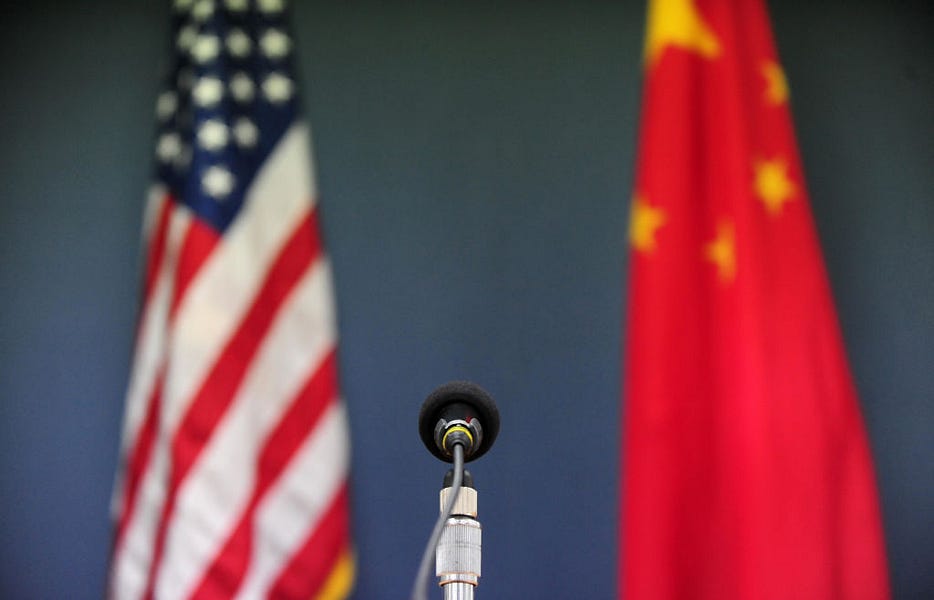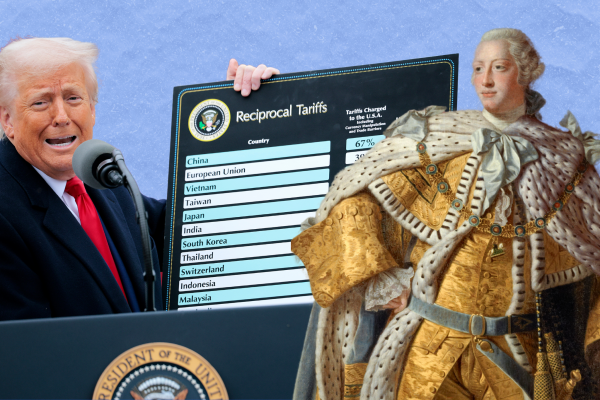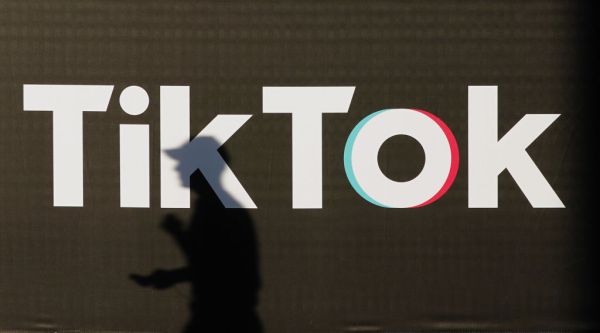Happy Tuesday! May you one day experience joy as pure and righteous as that of Dean Boxall, coach of gold-medal winning Australian swimmer Ariarne Titmus. Steve did yesterday, when ESPN reported that Packers quarterback Aaron Rodgers will very likely come back for one more season with the team.
Quick Hits: Today’s Top Stories
-
Civilian casualties in Afghanistan have reached record highs after accelerating over the past several months, according to a new report from the United Nations. Nearly half of the recorded casualties this year have been women and children. The Wall Street Journal adds that thousands of Afghans are fleeing to Turkey, which already holds 3.6 million Syrian refugees.
-
The Department of Veterans Affairs on Monday became the first federal agency to require COVID-19 vaccinations for most of its employees. Title 38 VA health care personnel—physicians, dentists, registered nurses, optometrists, etc.—will have eight weeks to be fully vaccinated.
-
President Biden and Iraqi Prime Minister Mustafa al-Kadhimi finalized an agreement on Monday that would formally end the United States’ combat mission in Iraq by the end of 2021. “The security relationship will fully transition to a training, advising, assisting, and intelligence-sharing role,” a joint statement from the U.S. and Iraqi governments read. “There will be no U.S. forces with a combat role in Iraq by December 31, 2021.”
-
The White House announced on Monday that those experiencing long-term COVID-19 symptoms could qualify for disability protections under various federal civil rights laws. Guidelines released by the Department of Health and Human Services and other agencies make clear, however, that individualized assessments are “necessary to determine whether a person’s long COVID condition or any of its symptoms substantially limits a major life activity.”
-
The Russian government has blocked dozens of websites linked to jailed opposition figure Alexei Navalny ahead of September’s parliamentary elections. The agency responsible said the websites were blocked due to “propaganda and banned extremist activity.”
-
The Texas Longhorns and Oklahoma Sooners informed the Big 12 on Monday that they intend to leave the athletic conference when their media rights deal expires in 2025, setting the stage for the two schools to join the Southeastern Conference and shake up the college sports landscape.
-
Former U.S. Senator Mike Enzi, a Republican from Wyoming, died yesterday after sustaining injuries in a bike accident over the weekend outside of Gillette, Wyoming, his hometown.
-
The U.S. Olympic team continues to pace the field in total medals earned with 22—a single bronze medal ahead of second-place China. Both countries are tied with Japan for gold medals with 9.
U.S.-China Relations Remain Frosty
U.S. Deputy Secretary of State Wendy Sherman met with China’s Foreign Minister Wang Yi and Vice Foreign Minister Xie Fen on Monday in Tianjin, China. This is the two countries’ highest-level meeting on Chinese soil since Joe Biden became president and their most high-profile summit since Secretary of State Antony Blinken and National Security Adviser Jake Sullivan’s consultation with their Chinese counterparts in Alaska four months ago.
The group discussed “ways to set terms for responsible management of the U.S-China relationship,” per a readout from State Department spokesman Ned Price. “The Deputy Secretary underscored that the United States welcomes the stiff competition between our countries—and that we intend to continue to strengthen our own competitive hand—but that we do not seek conflict with the PRC.”
Given the strained nature of U.S.-China relations, even such a clinical statement—“we do not seek conflict with the PRC”—could almost be seen as an attempt at deescalation. But there was still plenty of hostility to go around on Monday.
In a phone interview with the Associated Press on Monday, Sherman—who has served in every Democratic president’s State Department since the Clinton administration—said she had frank conversations with her Chinese counterparts about what the United States sees as China’s transgressions both domestically and on the world stage. These include the PRC’s “crimes against humanity” against Uyghur Muslims, its crackdown on democratic activists in Hong Kong, its economic blackmailing of other countries and corporations, and its “aggressive actions” in both Taiwan and the South and East China Seas.
Although Chinese Foreign Ministry spokesman Zhao Lijian described the talks as “profound, candid, and helpful for the two sides to gain a better understanding of each other’s position,” he said Wang and Xie came prepared to express their “unequivocal opposition to the U.S. side’s practice of interfering in China’s internal affairs and harming China’s interests,” adding that the United States “must change course and correct its mistakes.”
Those “mistakes”? Visa restrictions on Chinese students and members of the Communist Party, sanctions on Chinese leaders and government agencies, “attacks” on the Confucius Institute, the registration of Chinese media as foreign agents, and attempts to extradite Huawei official Meng Wanzhou after she was arrested in Canada.
According to Chinese state media, Vice Foreign Minister Xie was even more aggressive in his remarks, painting the United States as an international bully and indulging in a healthy dose of whataboutism.
“The U.S. side’s so-called ‘rules-based international order’ is an effort by the United States and a few other Western countries to frame their own rules as international rules and impose them on other countries,” he said. “How can the United States portray itself as the world’s spokesperson for democracy and human rights? … Historically, the United States engaged in genocide against Native Americans. Presently, the United States has lost 620,000 lives because of its halting response to COVID-19. Internationally, the frequent U.S. military action and the wars caused by the United States lying about the facts have brought undue catastrophe to the world.”
“The China-U.S. relationship is now in a stalemate and faces serious difficulties. Fundamentally, it is because some Americans portray China as an ‘imagined enemy,’” Xie continued. “It seems as if by making China an ‘imagined enemy,’ a national sense of purpose would be reignited in the U.S. The hope may be that by demonizing China, the U.S. could somehow shift domestic public discontent over political, economic and social issues and blame China for its own structural problems.”
Xie’s comments, according to Nanjing University professor Zhu Feng, are “aimed at giving the Chinese public confidence that the government will not succumb in the face of heightened pressure from the U.S. side.” But this “imagined enemy” line is not new.
China has long sought to convince the international community of its “peaceful rise,” arguing it would remain inwardly focused as it grew economically and militarily and not threaten the existing global order. With tensions growing in recent years, Chinese officials have maintained “threats that other countries feel [by China’s rise] are just wrong,” Oriana Skylar Mastro, fellow at Stanford University’s Freeman Spogli Institute for International Studies, told The Dispatch. “There’s no truth to that.”
If anything, Mastro added, the United States had—before its recent turn on Beijing—long “tried to wishfully fake its way to a peaceful U.S.-China relationship.”
Regular TMD readers are well aware of China’s myriad transgressions on the world stage. From the unconscionable persecution of Uyghur Muslims, to obfuscation and defiance over the coronavirus’ origins, to extensive cyberattacks, to incursions into Taiwanese airspace, China has not been acting like a country set on a “peaceful rise.”
Americans are taking notice. In 2018, the Pew Research Center found Americans’ perception of China was slightly below—but close to—their perception of India: 42 on a 0 to 100 “feeling thermometer.” Three years later, China’s figure there has plunged to 28, while India’s—as well as Japan’s and North Korea’s—remained essentially unchanged.
There remain fundamental disagreements within the United States—and the West at large—over how to address the threat posed by China’s rise, Mastro said. But she argued leaders have “credibly communicated” to China in recent years that the United States will not simply accede to Beijing’s ascendancy toward global dominance.
Tunisia in Turmoil
After months of churning political instability in Tunisia, President Kais Saied moved in one fell swoop on Sunday to dismiss Prime Minister Hichem Mechichi, suspend parliament for 30 days, and revoke its members’ legal immunity. The takeover—which has been both condemned as a coup and praised as a culmination of the people’s will—came amid mass anti-government protests in response to the coronavirus pandemic and economic insecurity.
“We have taken these decisions … until social peace returns to Tunisia and until we save the state,” the president said in a televised address, citing Article 80 of Tunisia’s 2014 constitution. The emergency provision lays the groundwork for the president to take “any measures necessitated” in the event of “imminent danger threatening the nation’s institutions or the security or independence of the country,” but many legal scholars have dismissed Saied’s interpretation as pretext for a power grab.
Nevertheless, proponents of the decree rushed the streets to celebrate Sunday, singing Tunisia’s national anthem and waving its flag.
On Monday, Tunisia’s military forced the closure of the parliament building and surrounded it with armed vehicles. Fighting broke out on the street outside between Saied’s supporters and opponents as members of parliament were barred from entering.
“It’s a coup against the constitution, against the revolution, against public and private freedoms. We consider the elected democratic institutions still upheld,” Rached Ghannouchi, Parliament Speaker and co-founder of the Islamist Ennahda party, said Monday. “This is what the Tunisian people rose up against. This is why I’m calling on the Tunisian people to stand with their revolution, with their constitution, and to lead a peaceful struggle to restore the democracy that was canceled by this statement.”
The government established after Tunisia’s 2011 Revolution—the genesis of the broader Arab Spring—has been hailed by the international community and human rights watchdogs as one of the most democratic in the region. But seeds of volatility have been present since its inception.
The Ennahda party, which currently holds the most seats in parliament, has faced significant internal opposition over its religious leanings, Tunisia’s astronomical unemployment rate (nearly 17 percent in 2020 per the World Bank), and its supposed mismanagement of the COVID-19 pandemic. (Though per Statista, Tunisia has experienced far fewer COVID deaths per million residents than its neighbors, Libya and Algeria.)
Many Tunisians have taken to the streets to voice their support for Saied’s move. But “you also see a lot of people—supporters of the Islamists, but also not—who are out there saying this is anti-democratic, this is unconstitutional,” Carnegie Endowment for International Peace senior Middle East fellow Sarah Yerkes told The Dispatch. “[They] are just really worried about the future of Tunisia’s democratic transition.”
As Saied begins the process of replacing key administrative positions, including that of prime minister, his picks for the posts could indicate his commitment—or lack thereof—to restoring democratic government.
The Biden administration, for its part, has voiced its broad support for Tunisia’s democracy, but has yet to denounce Saied’s takeover directly. In a call with Tunisia’s president Monday, a State Department spokesman said Secretary Antony Blinken “encouraged President Saied to adhere to the principles of democracy and human rights that are the basis of governance in Tunisia” and “urged President Saied to maintain open dialogue with all political actors and the Tunisian people.”
White House press secretary Jen Psaki was similarly reluctant to assign blame in Monday’s press briefing. “We’re concerned about the developments in Tunisia, which come as Tunisian authorities are seeking to stabilize their economy, confront a resurgence in the COVID-19 pandemic, and improve living standards for all Tunisians,” she said. “A determination about a coup is a legal determination, and we would look to the State Department to conduct a legal analysis before making a determination. So there hasn’t been a conclusion on that front.”
But failing to move quickly to hold Saied accountable runs the risk of emboldening him, Yerkes explained. “He’s testing the waters,” she said. “He’s going to keep going and do more if he doesn’t feel like there are consequences to his actions.”
Worth Your Time
-
As the more transmissible Delta variant spreads, we’ve begun to hear about an increased number of “breakthrough” infections affecting the fully vaccinated. If you’ve gotten your two shots (or one J&J one), should you be worried? Not really, science reporter Katherine Wu argues for The Atlantic, comparing breakthrough infections to an assault on a castle. “Without vaccination, the castle’s defenders have no idea an attack is coming,” she writes. “COVID-19 shots act as confidential informants, who pass around intel on the pathogen within the castle walls. With that info, defensive cells can patrol the building’s borders, keeping an eye out for a now-familiar foe. … Prepped by a vaccine, immune reinforcements will be marshaled to the fore much faster—within days of an invasion, sometimes much less. Adaptive cells called B cells, which produce antibodies, and T cells, which kill virus-infected cells, will have had time to study the pathogen’s features, and sharpen their weapons against it. While the guard dogs are pouncing, archers trained to recognize the virus will be shooting it down; the few microbes that make their way deeper inside will be gutted by sword-wielding assassins lurking in the shadows.”
-
In a recent piece for National Review, Yuval Levin brings his experience in public policy to bear on the ongoing infrastructure negotiations. “I’ve learned over the years that when it comes to a contentious legislative process like this, success and failure feel exactly the same while they are happening. They feel like a chaotic series of near-death experiences,” he writes. “The fact that the Democrats’ legislative strategy now has that feel to it doesn’t mean it won’t work. But I do think that both as a matter of substance and as a matter of strategy, the bipartisan infrastructure process makes sense for Republicans.”
-
In a terrific reported piece for The Philadelphia Inquirer, Andrew Seidman takes a look at how election conspiracies have metastasized within the Pennsylvania GOP—and launched One America News and Newsmax favorite Kathy Barnette to contender status in the race for retiring Sen. Pat Toomey’s seat. “As Barnette energized the denial movement with her futile hunt for voter fraud on Philadelphia’s Main Line, which hasn’t been previously reported, the movement elevated her,” he writes. “Meanwhile, two Barnette advisers are now working with a group that’s pushing Pennsylvania lawmakers for an Arizona-style partisan election review. Another parlayed his work into a job for Lindell. And Piton worked on the Arizona probe, collaborated with a prominent QAnon figure, and is now running for Senate in Illinois.”
Something Olympic
Presented Without Comment
Also Presented Without Comment
Also Also Presented Without Comment
Toeing the Company Line
-
David and Sarah took a deep dive into abortion jurisprudence on Monday’s Advisory Opinions, focusing on Mississippi’s challenge to Roe v. Wade, which directly asks the Supreme Court to overturn the almost 50-year-old precedent. How did the Mississippi attorney general frame the argument? How likely is it that the argument will succeed? And what would American governance look like in a post-Roe world?
-
On the site today, Emma Rogers has a profile of Chloé Valdary, an anti-racism activist whose “Theory of Enchantment” work is a counterpunch to the likes of Robin DiAngelo and Ibram X. Kendi, teaching people how to “choose to comport ourselves in such a way that we approach one another with love and compassion, even in the midst of profound disagreement.”
Let Us Know
Chinese Vice Foreign Minister Xie Fen is full of it on a whole host of issues. But does he have a point that an existential battle with China would reignite the United States’ “national sense of purpose?”
Are we more polarized right now because we don’t have a common enemy—Germany and Japan in World War II, the Soviet Union for much of the 20th century—to unite us?
Reporting by Declan Garvey (@declanpgarvey), Andrew Egger (@EggerDC), Charlotte Lawson (@charlotteUVA), Ryan Brown (@RyanP_Brown), Harvest Prude (@HarvestPrude), Tripp Grebe (@tripper_grebe), Emma Rogers (@emw_96), Price St. Clair (@PriceStClair1), Jonathan Chew (@JonathanChew19), and Steve Hayes (@stephenfhayes).







Please note that we at The Dispatch hold ourselves, our work, and our commenters to a higher standard than other places on the internet. We welcome comments that foster genuine debate or discussion—including comments critical of us or our work—but responses that include ad hominem attacks on fellow Dispatch members or are intended to stoke fear and anger may be moderated.
With your membership, you only have the ability to comment on The Morning Dispatch articles. Consider upgrading to join the conversation everywhere.